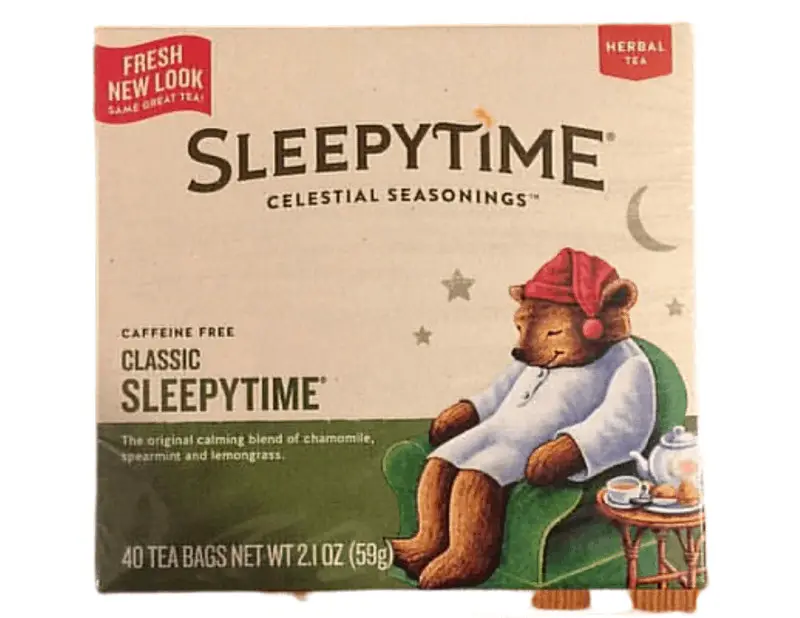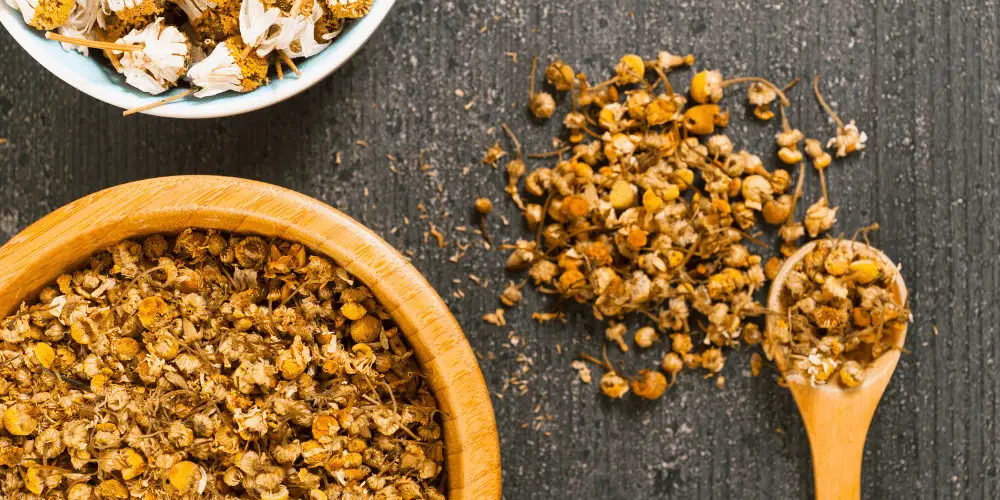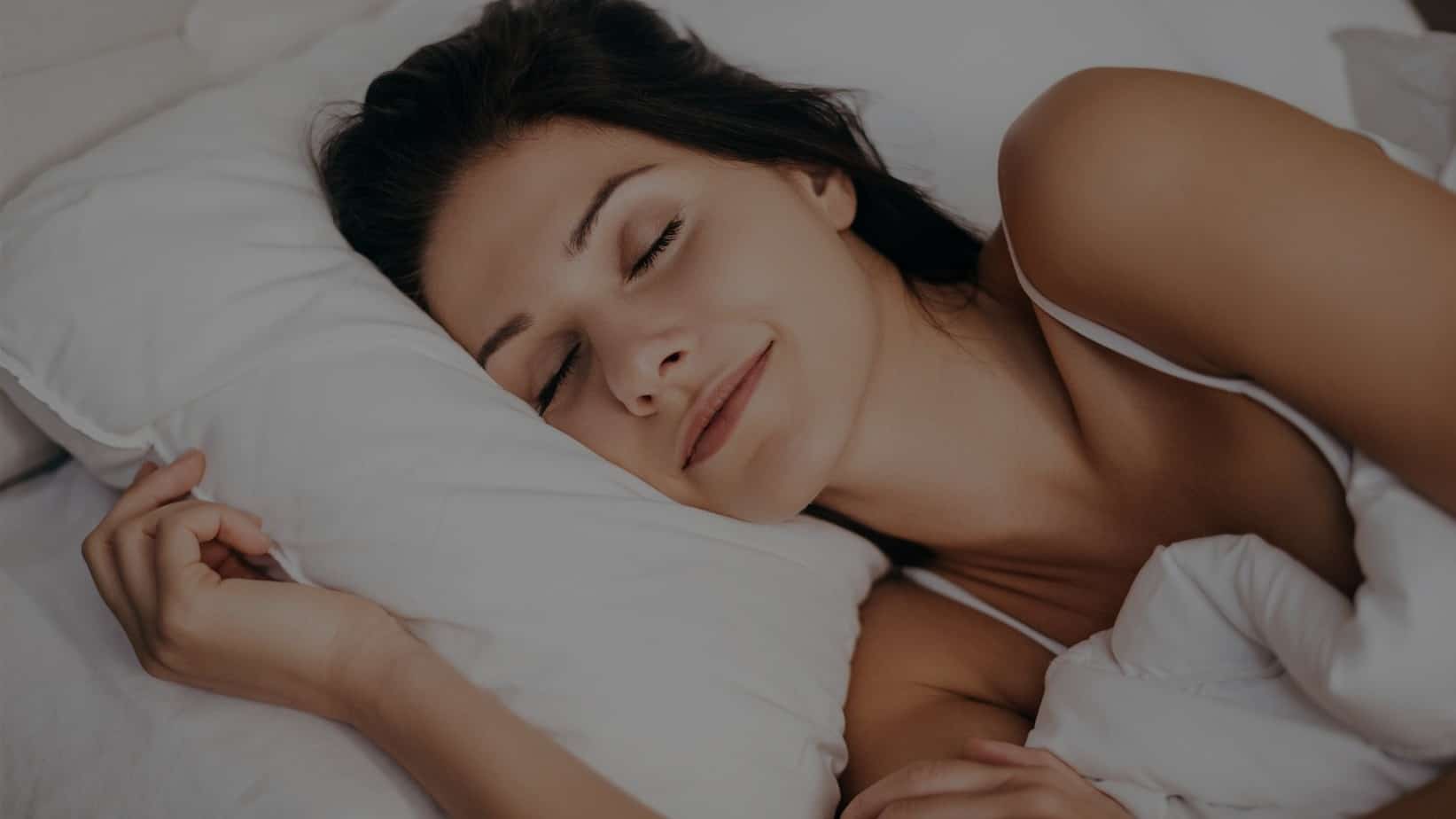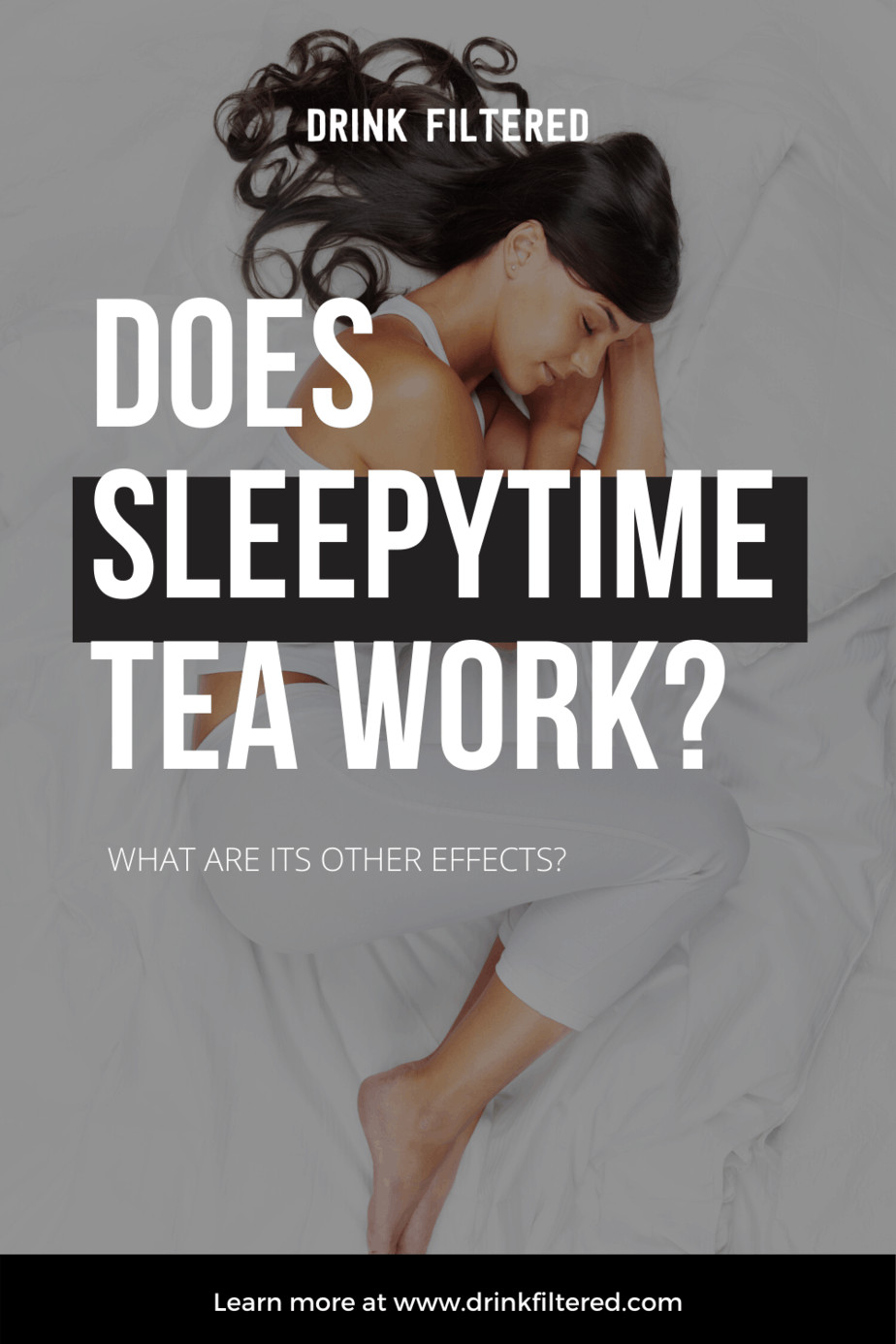
There’s nothing better than waking up refreshed after a long night’s sleep – and nothing worse than the dry-eyed feeling of lousy sleep. If you struggle to fall asleep or you feel that the quality of your sleep is suffering, you may be wondering about whether this tea is the answer.
Sleepytime Tea is marketed as the ultimate relaxing tea. The cozy, drowsy bear on the label makes sure of that, but does it work? In this article, we’ll be examining the ingredients in this tea to figure out whether it really is deserving of its name.
As advertised on the Celestial Seasonings website, sleepytime tea contains a mixture of chamomile, spearmint, lemongrass, tilia flowers, and more. Most of the herbs included in the tea have a mild sedative effect, slowing the nervous system and reducing the time it takes to fall asleep.
What is Sleepytime Tea?
This is a brand of tea that many of us will remember with nostalgia as many of our parents used to deliver a warm cup of this herbal tea when we were having trouble winding down for the night. The tea created more than 40 years ago is a blend of herbs and botanicals marketed as the ultimate tea to encourage the body to drift off to sleep at the end of the day.
What’s in This Tea?

As advertised on the Celestial Seasonings website, this herbal tea contains a mixture of chamomile, spearmint, lemongrass, tilia flowers, blackberry leaves, orange blossoms, hawthorn, and rosebuds. A lot of these ingredients have relaxing or soothing properties. Let’s see why these ingredients might help you to nod off
- Chamomile: Is well known as a relaxing substance. Lots of people swear by plain chamomile tea as a sure-fire way to get to sleep. It’s commonly thought of as a mild tranquilizer because it contains an antioxidant known as apigenin. This antioxidant interacts with receptors in the brain that initiate sleep.
- Spearmint: Studies have shown that spearmint can help improve your ability to get to sleep. Around 900mg a day can over time increase your tendency to fall asleep with ease.
- Lemongrass: This has been shown to reduce stress and promote sleep in aromatherapy. The scent of lemongrass is often used in spas to encourage relaxation and a release of tension.
- Tilia Flowers: Not many people have heard of tilia flowers. Tilia, also known as linden flowers can be found in Linden Tea; another tea used to cure sleep disorders. These flowers are believed to function as a mild sedative, like chamomile. They help the nervous system to slow down, allowing the body to drift off to sleep.
- Blackberry Leaves: This is a rare ingredient, as blackberry leaves aren’t often used in teas. While the leaves are high in vitamins and other antioxidants, there isn’t much research on whether this ingredient helps you to sleep.
- Orange Blossoms: Studies have shown that orange blossoms can help calm the nervous system, reduce anxiety, and help those who struggle to sleep. This ingredient also has a relaxing effect on the muscles and internal systems, helping to reduce pain and to improve digestion.
- Hawthorn: This shrub has a range of health benefits, but it has really been shown to help you get a good night’s sleep.
- Rosebuds: Like most of the Sleepytime ingredients, this has been shown to have a calming effect on the central nervous system. In fact, many people choose to drink pure rosebud tea to relax after a busy day or to wind down as they head to bed for the evening.
What are the Other Effects of Sleepytime Tea?

A lot of the ingredients we’ve discussed above have a range of effects other than putting you to sleep, for example:
- Reduce anxiety – The chamomile, linden, orange blossom, and rosebuds in Sleepytime tea all have a calming effect on the nervous system. While this helps the body drift off to sleep, it also helps to counteract conditions like anxiety and stress.
- Memory – Studies have shown that spearmint has a positive effect on cognitive functions like memory, especially in older patients.
- Pain relief – Orange blossoms are often used as a means to relieve pain from headaches or menstrual cramps.
- Digestion regulation – If you suffer from problems with digestion, the orange blossoms and hawthorn in Sleepytime may help to promote normal digestion.
- Artery and heart health – Hawthorns have been shown to improve artery and heart health.
- Detoxify the skin – All of the ingredients in this tea has antibacterial and antimicrobial properties that make them great for flushing the skin of toxins and creating a clear, glowing complexion.
How to Include Sleepytime Tea in a Relaxing Bedtime Routine

Curling up with a warm cup of this bedtime tea might not be enough to send you to the land of nod. There are many other things you can do to help ease falling asleep.
- Gentle Yoga Or Movement : quick 10-minute stretch or yoga session can calm the muscles and send positive hormones around the body. You’ll also release tension built up throughout the day, making it easier for you to stretch out in bed and relax.
- Meditation: Clearing your mind can help you to improve the quality of your sleep. If you struggle with a racing mind before bedtime, try meditating to encourage a calm train of thought.
- Limit Screen Time: The blue light that emanates from our screens can be incredibly detrimental to our ability to sleep. Essentially, the bright light tricks the brain into believing it’s daytime. If possible, avoid bright light for 1-2 hours before turning in.
- Get more sun during the day :If you spend most of your day cooped up indoors, you may be messing up your internal clock, or your circadian rhythm. Get some extra sun during the day, and you’ll find you feel more restful and sleepy at night. You may find that you fall asleep in a fraction of the time you used to when you increase your daily bright light exposure. The quality of your sleep will also improve.
Conclusion
So Does Sleepytime Tea Work? Yes, it does. It appears that Sleepytime tea has a calming, sedative effect on the mind and the nervous system. If you need a little boost when you’re nodding off, try including this bedtime tea in your nighttime routine. But, remember that to get a good night’s sleep you may also need to implement other relaxing habits.
Have you ever tried this tea? We’d love to hear what your experiences have been!








